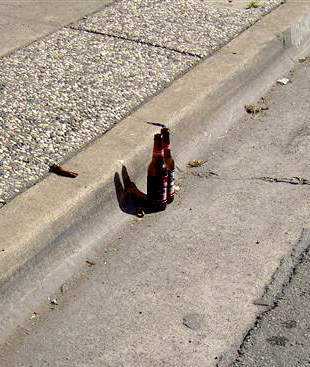Safe drinking measures rolling out state-wide
 A state-wide action plan has been launched to stamp out alcohol and drug related violence in Queensland.
A state-wide action plan has been launched to stamp out alcohol and drug related violence in Queensland.
Regional councils and other local government areas have been encouraged to tackle their problem areas with the establishment of ‘Safe Night Precincts', wherein strict rules are aimed at ending the callous stupidity of late-night fights and violence.
The Local Government Association of Queensland has welcomed the plan, which LGAQ President Margaret de Wit says will empower councils to implement local solutions.
“Under the action plan councils will have greater say on applications for extended liquor trading hours and adult entertainment permits, a proposal which has been supported by local government and the LGAQ for some time,” she said.
“This approach reflects a commitment to further empowering local councils to create safe and supportive environments for their communities.”
The ‘Safe Night Out Strategy' will see the establishment of more Drink Safe Precincts, which have been trialled in a number of traditionally troublesome spots including Townsville’s Flinders Street club strip.
The areas of key focus will be renamed ‘Safe Night Precincts’, and expanded from three to fifteen across the state.
Queensland suffers from its drinking problem in reputation and in reality, but the latest measures feature a variety of approaches which should reduce the burden of drug and alcohol-fuelled violent behaviour.
Technology will give authorities an edge, with the installation of better lighting, transport, CCTV, ‘sober safe centres’ and mandatory ID scanners in problem areas.
Legal changes will bolster the fight against drunken idiocy too.
‘Coward punch’ deaths will be punishable through a new offence of ‘unlawful striking causing death’, with a maximum penalty of life imprisonment. Offenders charged under the new law will be required to serve 80% of their sentence before being eligible for parole. Tougher penalties have also been imposed for people behaving violently around licensed premises, including increased on the spot fines for causing a public nuisance, refusing to leave licensed premises and obstructing police.
“Just as the culture around drink driving has changed, so too must community attitudes to excessive drinking and drug use,” Queensland Premier Campbell Newman says.
“Young people need to know what sort of behaviour is expected of them when they reach drinking age.”
With the release of an 18-month review of the former Drink Safe Precinct plan in May 2013, Queensland Attorney-General Jarrod Bleijie said “it is anecdotally showing some evidence of signs of success.”
This was despite many of the statistics showed only modest drops in rates of crime and injury, but significant increases in assaults and other offences in areas such as Townsville.








 Print
Print